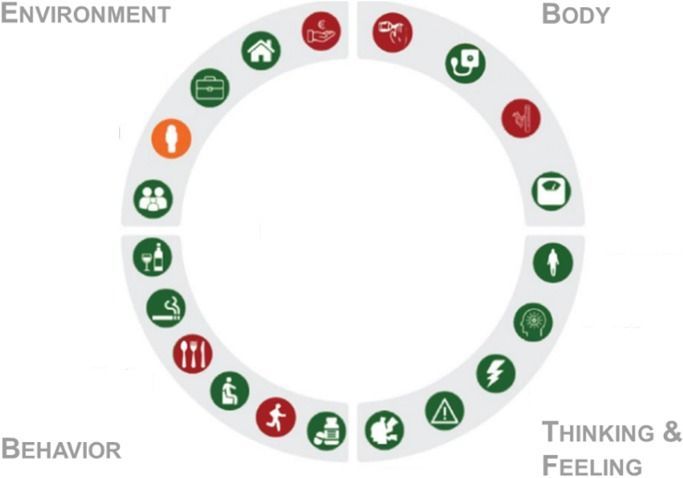PCs, tablets, 5G-powered live streams, and cloud platforms are all expected to see more demand from the education sector in China, with the coronavirus outbreak accelerating a digital shift, according to a report from research firm IDC China.




Google plans to add a Zoom-like gallery view to its business- and education-focused Meet videoconferencing service and let users start calls and join meetings right from Gmail, Google’s GM and VP of G Suite Javier Soltero told Reuters in an interview. The additions come amid huge growth for Meet as families, students, and workers use the service while at home due to the COVID-19 pandemic.
The upcoming gallery view will let users display up to 16 meeting participants in one frame, according to Reuters. That functionality is coming later this month, said Soltero. Zoom’s gallery view, by contrast, lets you see the thumbnails of up to 49 people in one screen, if you have a powerful enough CPU to display them all.

A new study reviews the state of the art of aging biomarkers and explores the future development of even better ways of measuring biological age.
The need for better aging biomarkers
Human life expectancy has been increasing throughout the 20th and 21st centuries due to improvements such as better access to healthcare and sanitation, lower child mortality, reduction of poverty, and better education access.

Founded in 1986, the Multidisciplinary Association for Psychedelic Studies (MAPS) is a 501©(3) non-profit research and educational organization that develops medical, legal, and cultural contexts for people to benefit from the careful uses of psychedelics and marijuana. MAPS furthers its mission by: Developing psychedelics and marijuana into prescription medicines; Training therapists and working to establish a network of treatment centers; Supporting scientific research into spirituality, creativity, and neuroscience; and educating the public honestly about the risks and benefits of psychedelics and marijuana.
How and when will this pandemic end? We asked a virologist: https://bit.ly/3afDiMy from World Economic Forum P.S., Many people predict that life will be permanently changed after COVID-19 pandemic. Some new things will become the norm, such as remote working, #telemedicine, the increase of #automation, online education, and so on (e.g., https://bit.ly/2z6qF9I). Our opinion is that “whether the above things become permanent depends on how the pandemic ends.” If the virus becomes seasonal, as predicted by the virologist in the interview, then our lives may gradually shift towards these new practices (i.e., working remotely, seeing doctor remotely, and learning online, etc.). However, if the virus disappears abruptly, just like the 1918 Spanish flu (https://bit.ly/3bdJKop), our lives may slowly go back to what we used to know before the COVID-19 crisis.
We spoke to Belgian virologist Guido Vanham, the former head of virology at the Institute for Tropical Medicine in Antwerp, Belgium, and asked him: how will this pandemic end? And on which factors might that depend?

The coronavirus pandemic has resulted in the deaths of tens of thousands of people across the globe. It is also causing huge damage to the global economy. According to the predictions of the International Monetary Fund (IMF), 2020 could be the worst year since the Great Depression in the 1930s, with more than 170 countries likely to experience negative per capita income growth due to the pandemic. Countries are taking different measures to mitigate that economic impact, depending on the situations in their countries. However, the process of overcoming economic crisis is going to be extremely difficult. Few businesses would find it hard even to sustain and there is going to be a significant upsurge in unemployment rates.
Like much of the rest of the world, India is under lockdown. It is bit premature to predict the exact impact of coronavirus crisis on the Indian economy since the situation is still evolving. However, it is clear at this stage that the country will be facing major economic downturn and levels of unemployment will steeply rise. The government has already offered an economic package of 1.7 trillion rupees ($22.3 billion) in the last month for providing food security and money to the poor. It is expected that the government would shortly announce the next economic stimulus package.
All this would require the government of India to undertake a ruthless review of existing patterns of expenditure. The government budgeting caters to the requirements of various segments of the society, including agriculture, health, education, and railways. The budget has two other important areas of attention: defense and science & technology.

Interventions that may slow ageing include drugs (e.g., rapamycin, metformin), supplements (e.g., nicotinamide riboside, nicotinamide mononucleotide), lifestyle interventions (e.g., exercise) and diets (e.g., fasting)
Thanks to advances in modern medicine over the past century, the world’s population has experienced a marked increase in longevity. However, disparities exist that lead to groups with both shorter lifespan and significantly diminished health, especially in the aged. Unequal access to proper nutrition, healthcare services, and information to make informed health and nutrition decisions all contribute to these concerns. This in turn has hastened the ageing process in some and adversely affected others’ ability to age healthfully. Many in developing as well as developed societies are plagued with the dichotomy of simultaneous calorie excess and nutrient inadequacy. This has resulted in mental and physical deterioration, increased non-communicable disease rates, lost productivity and quality of life, and increased medical costs. While adequate nutrition is fundamental to good health, it remains unclear what impact various dietary interventions may have on improving healthspan and quality of life with age. With a rapidly ageing global population, there is an urgent need for innovative approaches to health promotion as individual’s age. Successful research, education, and interventions should include the development of both qualitative and quantitative biomarkers and other tools which can measure improvements in physiological integrity throughout life. Data-driven health policy shifts should be aimed at reducing the socio-economic inequalities that lead to premature ageing. A framework for progress has been proposed and published by the World Health Organization in its Global Strategy and Action Plan on Ageing and Health. This symposium focused on the impact of nutrition on this framework, stressing the need to better understand an individual’s balance of intrinsic capacity and functional abilities at various life stages, and the impact this balance has on their mental and physical health in the environments they inhabit.

KELVIN OGBA DAFIAGHOR is inviting you to a scheduled Zoom meeting.
Topic: COVID 19, China cover up, conspiracy theories, was the C.I.A complicent? should China be punished? Lessons learnt. OIN NOW Time: Apr 16, 2020 06:00 PM West Central Africa.
Join Zoom Meeting https://us04web.zoom.us/j/79182052546
Meeting ID: 791 8205 2546
Zoom is the leader in modern enterprise video communications, with an easy, reliable cloud platform for video and audio conferencing, chat, and webinars across mobile, desktop, and room systems. Zoom Rooms is the original software-based conference room solution used around the world in board, conference, huddle, and training rooms, as well as executive offices and classrooms. Founded in 2011, Zoom helps businesses and organizations bring their teams together in a frictionless environment to get more done. Zoom is a publicly traded company headquartered in Sanose, CA.
Where was everyone when these channels were dedicating so much time and effort to help create awereness and get support for these creatures in Africa?
The government that neglected this eventhough they are not from Africa have neglected something that has now created, trillions of dollars of losses, and even more is coming up.
This documentary was made ten months ago.
Pangolins are believed to be the most trafficked mammals in the world. As the four Asian species of pangolins have dwindled, poachers are increasingly turning to the African species to supply the trade. In this short film, meet the bold Nigerians who are fighting to protect this gentle and vulnerable creature.
➡ Subscribe: http://bit.ly/NatGeoSubscribe
#NationalGeographic #Pangolins #WildlifeConservation